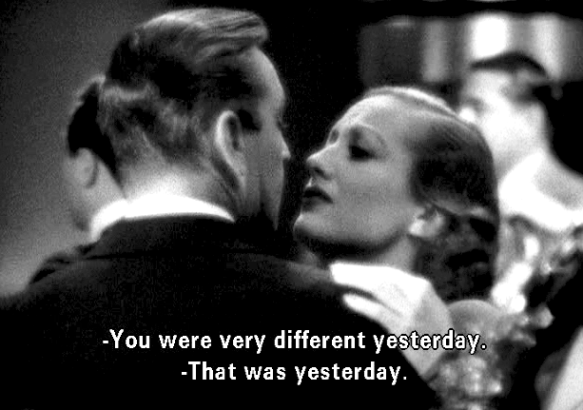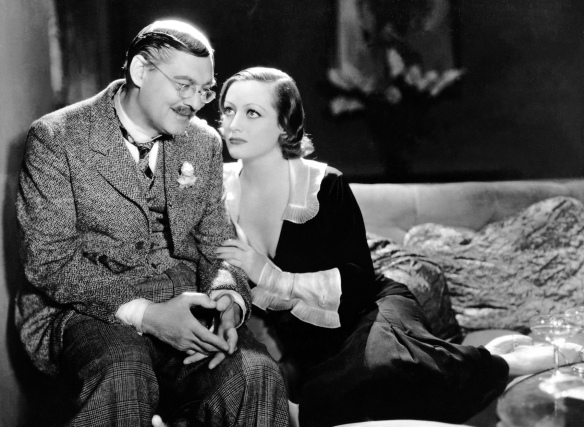This week, we talked about MGM and how the large Hollywood studios came to be the titans of the industry they are today. I missed class on that day though unfortunately, so all I can talk about is what we watched later in the week. We watched the Grand Hotel, a wonderful little film that is easily my favorite film we’ve watched so far. Even though the film predates The Bride of Frankenstein by several years, I personally think that it has a much more human story and believable acting, and it takes place in a small contained set, leaving room for the actors to really get to know their characters. Frankenstein didn’t really have that as it was trying to capture that lightning in a bottle grand scope of the original, leaving little room for lasting character moments outside of the monster himself and even that felt a little forced. Frankenstein honestly felt a bit like a cheap cash grab, whereas Grand Hotel felt like a passion film.

The film opens up with a really smart way of introducing the characters to us. All of the characters are on the phone talking, and you only hear the full conversation once they are finished cutting between all the characters. It seems disjointed and strange, not to mention confusing, but this is all to service the line that is spoken afterwards by the doctor, “Grand Hotel. Always the same. People come, people go. Nothing ever happens.” This quote shows just how pointless it is to chaotically run around and act important when you’re at the Grand Hotel. The characters are all very good as well, with the Baron pretending to be someone he isn’t, and ending up being the lovesick do-gooder who meets a tragic fate in the end. His love interest is a ballerina who thinks that she is all washed up, to the point of even wanting to commit suicide. The most interesting character in the film is definitely Kringelein however, as he has a better character arc than almost any other character. He goes from a dying man who’s down on his luck to someone who truly gets to appreciate life before he dies. These aren’t even all the characters, just the integral three in my opinion. With such a small cast, the film can really show off the characters in revealing new ways.

This is all of course not even taking into account the set itself. While it sounds like the set would be absolutely massive if it’s a whole hotel, the sets were rather small and personal. It was amazing how my eyes would move over the set and just be able to not be bored once. Any space that the actors weren’t using wasn’t exactly empty space, but rather a believably empty space. You really felt like you were in a hotel, but an expensive one in the lap of luxury. I can’t even give this movie the justice it deserves, as there were some rather interesting undertones about what it really means to live that I didn’t even talk about, but I’ll end this post by saying that I can’t recommend this movie enough.
